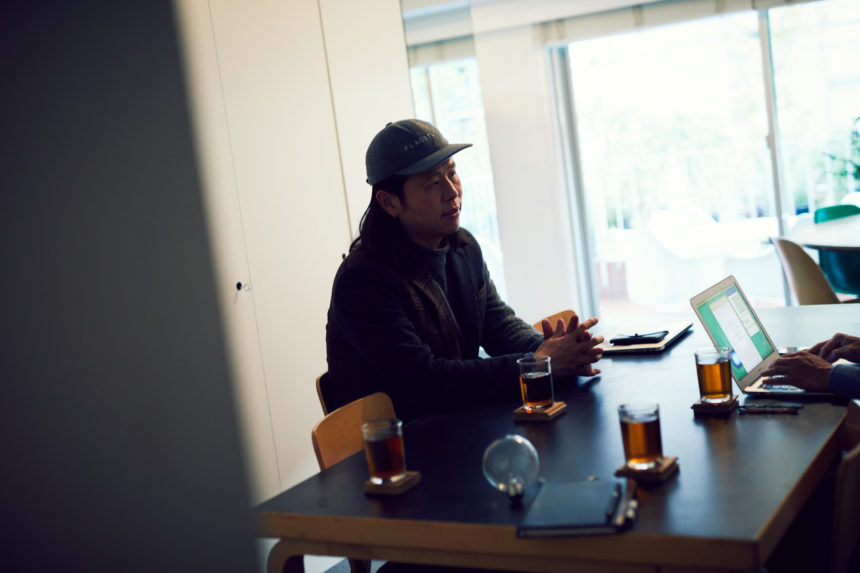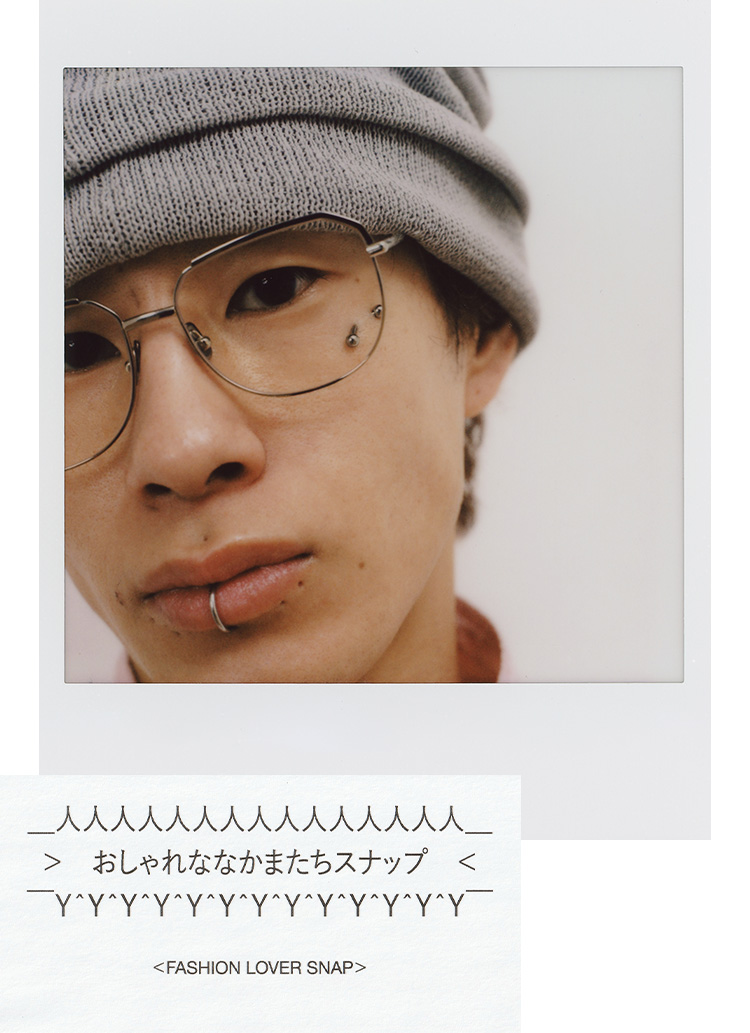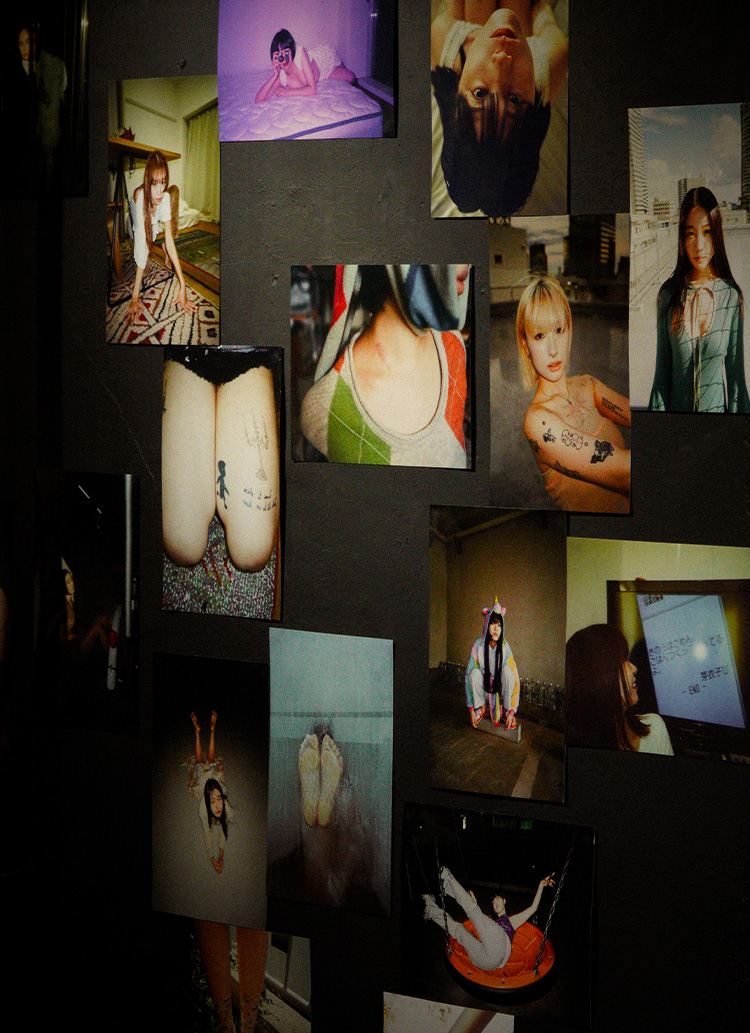
It is not uncommon to hear the word "culture," but when we try to explain its exact meaning, we are at a loss for words. "THINK GREEN PRODUCEIt is said that culture is the accumulation of lifestyle habits," said Masato Sekiguchi of

GARDEN HOUSE, a restaurant in Kamakura by THINK GREEN PRODUCE
I see. Culture is not something special, but something that is part of our daily lives. The accumulation of our daily thoughts, choices, and lives take the form of music, art, fashion, design, and so on.

Line-inc. office view *Excerpt from CULTURE WORKS.
Following the production of "GARDENHOUSE" and "TRUNK (HOTEL)", Mr. Sekiguchi started a media business called "CULTUREWORKS". We asked him about the reason for the launch.
I have been in the business of introducing foreign cultures and lifestyles to Japan, and have come to know creators, designers, and chefs from the U.S. and other countries.
They are called "hipsters," and every time they visit Japan, they are amazed and say, "Japan is amazing! Whenever they visit Japan, they are amazed. When I take them to a yakitori restaurant, they say, "What's this? When I show them visvim, they say, "You can't make something like this! I can't make something like this!
I have always been attracted to the cultures and lifestyles of America, Europe, and Oceania, but as I thought about it in a roundabout way, I came to the conclusion that Japan was the place to be. I came to the conclusion that Japan was the place to be.

Jamo Associates office view *Excerpt from CULTURE WORKS.
Because Mr. Sekiguchi makes his living importing and exporting culture, he was able to take a step back and look at its value. There were hints there that could help the future of Japanese society.
When I looked back at our culture, I wondered if it would be passed on and developed properly. I began to worry. With the spread of the Internet, information is now coming and going beyond time and borders, and lifestyles, trends, and economies are becoming more homogenized. What will become of Japan's unique culture? In the midst of such imagination, I began to think about what I could do for Japan's cultural industry. That was one of the reasons why we launched CULTUREWORKS.

COMPLEX UNIVERSAL FURNITURE SUPPLY office view *Excerpt from CULTURE WORKS.
Sekiguchi continues, "Those who lead the cultural industry need two elements: a sense of culture and an economic view of the big picture.
There are very few people who can make it work as a business with a cultural mindset. You can read more about this in CULTUREWORKS.Takashi Kumagaihills and fieldsMakoto TanijiriI wanted to do something about this because they were facing similar issues. I guess it all started with the conversation, "There are no good people out there, are there?

If we subdivide the issues, the first one is the black box nature of the cultural industry. It's hard to see how work is done from the outside. I myself am often asked, "How do you do what you do now?" I myself am often asked, "How do you do what you do now? My first thought is to dissect and communicate the interesting work that exists in the world.
On the other hand, from the perspective of job seekers, the current system allows them to search for jobs based on conditions such as annual income, work location, and benefits, but it is difficult for them to select jobs based on their motivation to do interesting work or to create culture. I believe there is definitely a demand for such an approach.

Log Road Daikanyama, a commercial facility in which THINK GREEN PRODUCE participated in the basic planning
Also, if we introduce attractive jobs, it will motivate potential career changers to "try a new job because it looks interesting! This will also motivate potential career changers to "try a new job because it sounds interesting! I hope that this initiative will trigger an increase in the number of people interested in the cultural industries, and if cultural jobs can become a single entity and expand as a new industry in Japan, it may provide a solution to the various social problems that Japan will face in 2020 and beyond. I believe that this will provide a solution to the various social problems that Japan will face after 2020.

It is inevitable that the nature of work will change drastically with the declining birthrate, aging population, and the development of AI. Mr. Sekiguchi wanted to properly analyze the current situation while looking into the distant future, and establish a system that would allow him to continue his business.
One job magazine is reporting record profits, and the number of job openings is increasing. The value of working for one company until retirement has changed, and the idea of changing jobs has become more casual. I would like to contribute to society by making a business out of communicating jobs related to culture, while maintaining sound operations.

Work and life are inseparable. CULTUREWORKS," full of suggestions on how to work and live in the future, may be a new map open to all people living in today's turbulent times.

Photo of Rhino inc. headquarters *Excerpted from CULTURE WORKS.
Incidentally, there is also an interview with Toshiyuki Tsai, president of Rhino, the management company of HOUYHNHNM'sthis way (direction close to the speaker or towards the speaker)The information is posted on the following website. Please take a look.
Photo_CULTUREWORKS
Text_Taiyo Nagashima
CULTUREWORKS
culture-works.com







